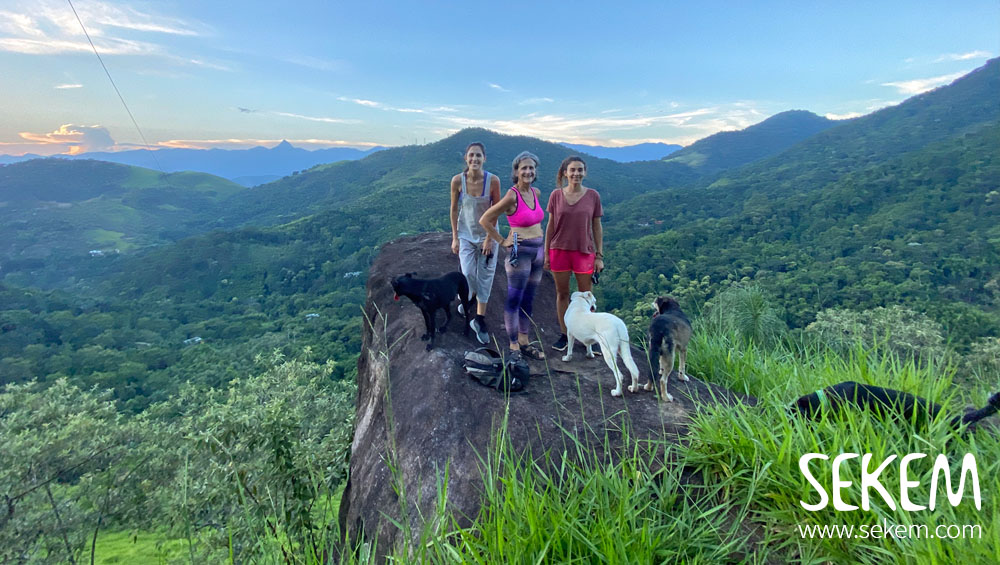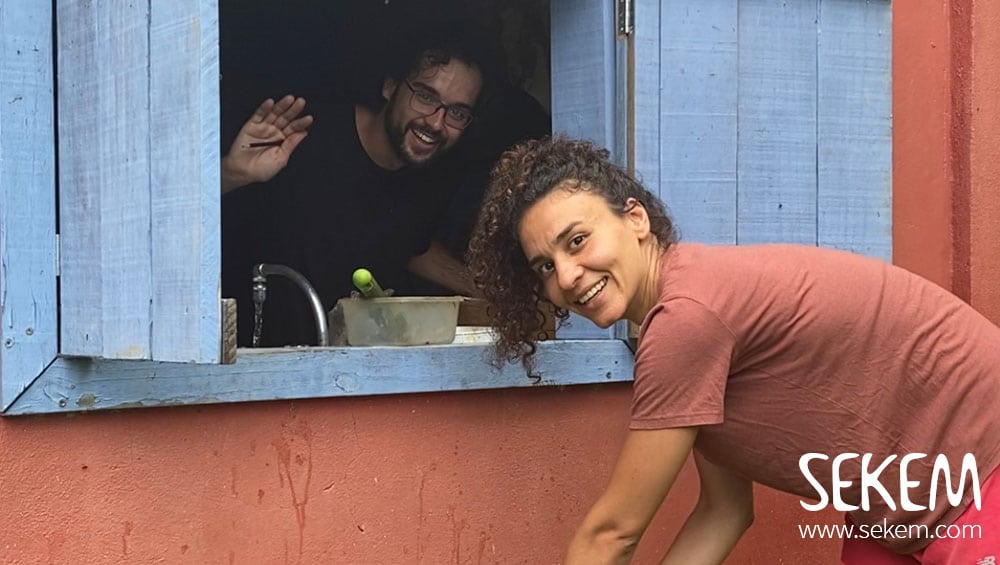Recently, SEKEM’s community coordinator Randa Seyam made a special visit to one of SEKEM’s partner organizations, Sinal do Vale (SINAL), in Rio de Janeiro, Brazil. Randa was a volunteer at SINAL in 2019, before embarking on her journey at SEKEM for the past two years. SEKEM became an inspiration for SINAL since its founder Thais Corral visited the Egyptian Initiative in 2010, and became a close friend of Ibrahim Abouleish. Currently, she and Helmy Abouleish became co-chairs of the Sustainable Livelihood Commission at the World Future Council. The examples of SEKEM and Sinal do Vale illustrate how solutions models for a sustainable future can be realised despite a lot of challenges. They have similar visions which they pursue in two completely different parts of the world.
In the following text, randa Seyam is presenting the organisation Sinal do Vale and its vision.
The Institute SINAL is a center for the regeneration of ecosystems, communities, and individuals and a steward of 200 hectares of land between the urban sprawl of Rio de Janeiro and some of the last protected areas in the Atlantic Forest, one of the most biodiverse and threatened biomes in the world. For nearly a decade, SINAL has been developing practical solutions on their campus for the regeneration of soil, forest, and food systems that can be replicated and scaled throughout the marginalized communities in our bioregion. SINAL’s vision is that to reach the ambitious global goals for landscape restoration that the world needs, decentralized land stewardship arrangements are essential. Therefore, SINAL’s land stewardship strategy focuses on the regeneration of a specific, 10,000 hectare region which they call the Serra Estrela Bioregion.

In the past year, SINAL has begun its largest ecosystem restoration project yet, with the restoration of 30 hectares of degraded land as part of the state government’s project Forests of Tomorrow. The project uses a variety of restoration techniques, including direct planting of native species, assisted natural regeneration and agroforestry – a technique used commonly in the Mata Atlantica. Randa was able to help out in the native tree nursery while she was in Brazil.
Another project of Sinal do Vale is Madre Frutos, a social enterprise that commercializes a line of healthy, regional, organic products processed from green jackfruits, grown locally in agroforests or sustainably extracted directly from the Atlantic Rainforest. They developed an innovative technique that processes jackfruit in 5 separate parts, making its use in culinary recipes simple and feasible for chefs and amateurs alike, given its neutral flavor and meat-like texture. This year, they successfully built a processing facility in which 12 local women were hired to work and produced 5 tonnes of product that was sold to supermarkets and restaurants.
In SINAL I have experienced nothing but deep inner joy. For me it was not just about the sustainable practises and methods or workshops for my inner personal growth; It was mainly about deeply experiencing how mother nature holds a space for each individual to thrive in and the rich encounters I had with the community members. Thank you Thais, Johanna, Katie, Mari and Mike.
More about SEKEM and Sinal do Vale

